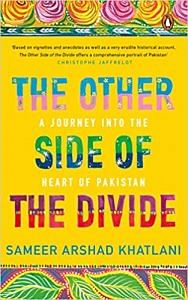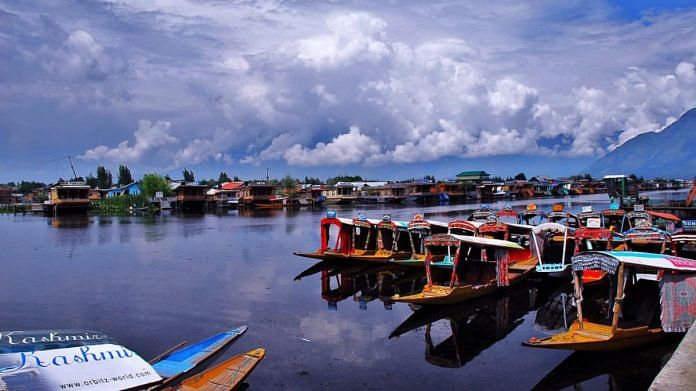In the 1950s, radio was an innocuous luxury in Kashmir only if one chose the correct airwaves. It was a decade of consolidation and distrust. India was strengthening its grip over the state, constantly looking over its shoulder, wary of Pakistan’s designs. Pakistan coveted Kashmir and considered its idea of nationhood incomplete without it. India played its cards well to get the better of Pakistan. It won over to its side the state’s most popular leader, Sheikh Abdullah, even as a series of blunders ensured that Kashmir slipped through Pakistan’s fingers. It antagonized Abdullah to begin with.
The Kashmir Valley was expected to fall into Pakistan’s ‘lap like a ripe fruit’, but the attempt to take it by force in 1947 backfired. As a result, Kashmir became more of a forbidden fruit for Pakistan.
Ill-equipped Pakistani irregulars tried to capture the state; their indiscipline did them in. They were beaten back when they were within striking distance of Srinagar airport. A delay in taking the airfield allowed Indian forces to land in Srinagar. The irregulars proved to be no match for the professional force. They had no option but to beat a hasty retreat. The job was still half done. Kashmir’s political future was subject now to a referendum. India left nothing to chance. It did everything to maintain territorial status quo in Kashmir and to make the referendum redundant. A network of spies was given carte blanche to nip any real or perceived attempts to reverse the status quo in the bud. Everybody was a potential suspect. Big brother watched all.
Radio was the most potent propaganda tool at the time. It was, though, a medium that could not be banned. Airwaves did not respect national boundaries. There was nothing the spies could do to control them. Radios, however, were few and far between. It was not a difficult task to keep an eye on those who had them. Music and locally broadcast news were fine, but anybody caught listening to Radio Pakistan faced the music, literally. The radio policing had a chilling effect. You could listen to Radio Pakistan at your own peril. People listening to the radio in groups were particularly vulnerable.
Also read: Rajiv Gandhi had wanted to end impasse in Kashmir and saw Farooq Abdullah as its best bet
Abdullah turned a blind eye to the iron-fisted approach. The mistrust was to consume him soon. He was unceremoniously dismissed and put behind bars on charges of ‘being in contact with Pakistani intelligence’ in 1953. It was a fall from grace, which would have been unimaginable six years earlier when he sided with India. A supporter of Abdullah, Maqbool Sherwani, had tricked the irregulars into taking a wrong route to Srinagar. It was too late by the time they realized they had been misled.
The Pakistan-backed irregulars summarily executed Sherwani. He was nailed to death when they found out he had tricked them. Abdullah had rallied his supporters to resist the invasion. They did a fairly good job of it only to helplessly see their leader face the charge of treason in a matter of a few years. The charges were never proven, but it sent a larger message. It was better to be safe than sorry. Nobody understood it better than my risk-averse, petit bourgeois family. They always stayed clear of anything—forbidden airwaves included—that might risk the prospects of their government jobs.
The restrictions eased by the 1980s. It was normal for people to watch the state-owned Pakistan TV. Blockbuster Pakistani serials and reality shows like Neelam Ghar were a fad through the decade. People would spend hours fixing their TV antennas to improve grainy cross-border reception. It soon became risky once more when a full-blown, Pakistan-backed insurgency triggered in Kashmir in 1989. A heavy-handed response followed. I grew up in Bandipora, where the insurgency, cordon-and-search operations picked pace slowly. The operations were an important counter-insurgency tactic, which would send shivers down the spines of even the toughest among us.
Also read: Nehru was pursuing a Kashmir solution with Pakistani support, but Cold War came in the way
It was not until the mid-1990s that we were caught in the middle of one such operation. We had nothing to hide and stayed put until someone realized a potential source of trouble: my collection of posters courtesy a popular magazine published from Madras (now Chennai), Sportstar. It included posters of iconic Pakistani cricketers, who were a rage at that time. The thought occurred to someone at the last moment, sending us into a tizzy. We had to make sure we disposed of the unwanted posters before our house was searched. I showed great presence of mind for my age by dumping the unwanted posters in a compost pit in our backyard. The search passed off without any surprises. I saved the day.
Pakistan has been a stick liberally used to beat the Kashmiris with.
 This excerpt from The Other Side of the Divide: A Journey Into the Heart of Pakistan by Sameer Arshad Khatlani has been published with permission from Ebury Press.
This excerpt from The Other Side of the Divide: A Journey Into the Heart of Pakistan by Sameer Arshad Khatlani has been published with permission from Ebury Press.




The best way to treat terrorists is like China or USA (Guantanamo Bay) treats them. Hope the government of India will understand it one day.
Hari Singh-the Maharaja alongwith his Family & Treasures deserts his kingdom on the night of 24 Oct 1947 & seeks refuge in his Jammu Palace.HM Patel flies from Delhi with a readymade Instrument of Accession approved by Nehru & Mountbatton – heavily loaded against India.
Accession is accession. Why those conditions were incorporated in the subject Instrument – because of which, the Accsssion became a cotroversy ?
Possibly Sardar Patel did not see the draft !
Well, decks were now cleared for the illustrious Indian Army to undertake an airborne operation. In the annals of Military History, the speed with which this operation (within a record time of a few hours) was exeuuted is beyond compare.
The Pakistan Army & the Kabailis were beaten in their own game.
The J&K ops 47/48 had to be stopped wef 01 Jan 1948 as Nehru – much against the advice of his Military Commanderss decided to knock at the doors of UN. He thus internationized the issue & made J & K a playground for Pakistan in the years to come.
Sheikh-the Master Ji took a pivotal stage & a few more families joined him to swindle the State coffers. to the hilt.
The Story of J&K reflects the hollowness & foolishness of Indian polity & total lack of their strategic leadership ignoring Supreme National Interests with utter disregard to Geo-Strat & Geo-Pol imperatives of J&K.
India continues to suffer.
”They began to leave in much greater numbers in the 1990s during the eruption of militancy, following persecution and threats by radical Islamists and militants. The events of 19 January 1990 were particularly vicious. On that day, mosques issued declarations that the Kashmiri Pandits were Kafirs and that the males had to leave Kashmir, convert to Islam or be killed. Those who chose to the first of these were told to leave their women behind. The Kashmiri Muslims were instructed to identify Pandit homes so they could be systematically targeted for conversion or killing.”
Not sure if Kashmiris realize they would have to fight their own fight going forward. And writers like Mr. Khatlani are doing a good job of it. As a Pakistani, I see how culturally and religiously close Kashmiris will remain with Pakistan no matter what the circumstances. India using its heavy handedness would remain an antagonist. How can it not. The fruits of fear cannot will not bear the results Delhi desires.
India is only guarded by god himself.muhammed cannot win war against RAM . Jai shree RAM…